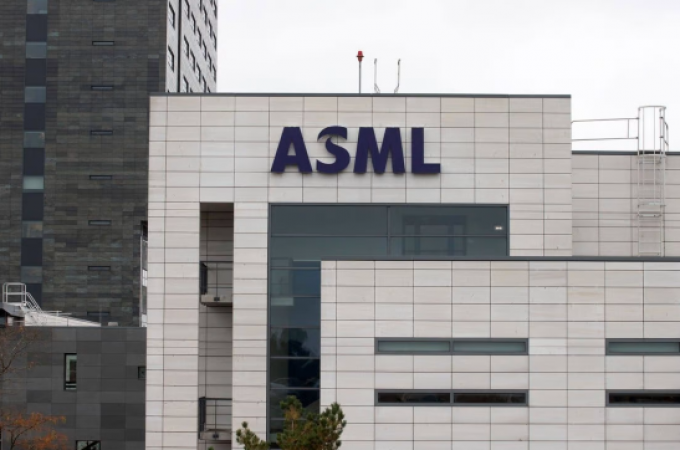
Beijing: The Netherlands will defend its economic interests when it comes to selling chip equipment to China, a senior Dutch official has said, citing the country's refusal to submit to Washington's efforts to isolate China from semiconductor technology. Provides additional evidence.
In Europe the nation is home to ASML Holding NV, which dominates the market for unique, state-of-the-art chip manufacturing equipment and is the target of US efforts to constrain China.
In light of ongoing trade rule talks with the US and other allies, Dutch Foreign Trade Minister Lisje Schreinmacher told lawmakers Tuesday that the Netherlands will make its own decision regarding ASML's sale of chip gear to China.
Also Read: Google's parent Co 'ALPHABET' to lay off 10,000 employees
We must defend our own interests, including our economic and national security interests, Schreinmacher told parliament in The Hague. If we negotiate with the US and put it in the EU basket, but in the end it turns out that we give deep ultraviolet lithography machines to the US, we are even worse off.
The second most advanced chip production equipment produced by ASML, based in Veldhoven, Netherlands, is called a deep ultraviolet system, and is required to produce a variety of semiconductors.
Schreinemacher's comments appeared to signal growing Dutch opposition to US demands that the Netherlands join Washington on export controls to thwart Beijing's plan to domestically build its chip industry and bolster its military. The European nation wants to continue its access to China as an important market.
Also Read: Mastodon is giving competition to Twitter, new people are joining everyday
The Dutch minister said last week that the US should not assume that the Netherlands would take its stand on China's export restrictions unquestioningly.
Because the Dutch government refused to issue it a license in response to US pressure, ASML did not sell any of its most sophisticated extreme ultraviolet lithography machines to China, but was still allowed to market less sophisticated chipmaking systems in the Asian nation. Is.
Bloomberg News has reported that US officials are pressuring the Dutch government to freeze the sale of immersion lithography machines, the most state-of-the-art equipment in ASML's deep ultraviolet line-up.
The Biden administration is trying to persuade allies, including the Netherlands and Japan, to implement sweeping measures announced in early October to ban more chip machines from China.
Since ASML is one of the few businesses that dominates the market for semiconductor manufacturing equipment, the Netherlands is crucial to the conflict. Its rivals include Tokyo Electron Ltd. in Japan, Applied Materials Inc., Lam Research Corp. and KLA Corp. in the US.
This month, senior US officials are visiting the Netherlands to talk about the export restrictions, including Alan Estevez, Under Secretary of Commerce for Industry and Security. But the talks are not expected to lead to an immediate agreement, according to Bloomberg News.
The European Union and Washington are currently negotiating a number of divisive trade issues. The countries, led most vocally by France, have warned the measures could damage Europe's economies and suggested complaining to the World Trade Organisation.
These topics will be discussed at the Trade and Technology Council, a high-level meeting between EU and US officials early next month.
Meanwhile, China is working to prevent other countries from bowing to US pressure. Chinese President Xi Jinping urged Dutch Prime Minister Mark Rutte to refrain from interfering in international trade during a Group of 20 summit last Tuesday.
Also Read: Envisioning a Digitally Smart and Sustainable India – Nikhilesh Tiwari
Rutte was informed by Xi that "we must stop politicizing economic and trade issues and maintain the stability of the global industrial chain and supply chain." The Dutch leader also visited South Korea last week to strengthen chip ties and discuss technical issues.